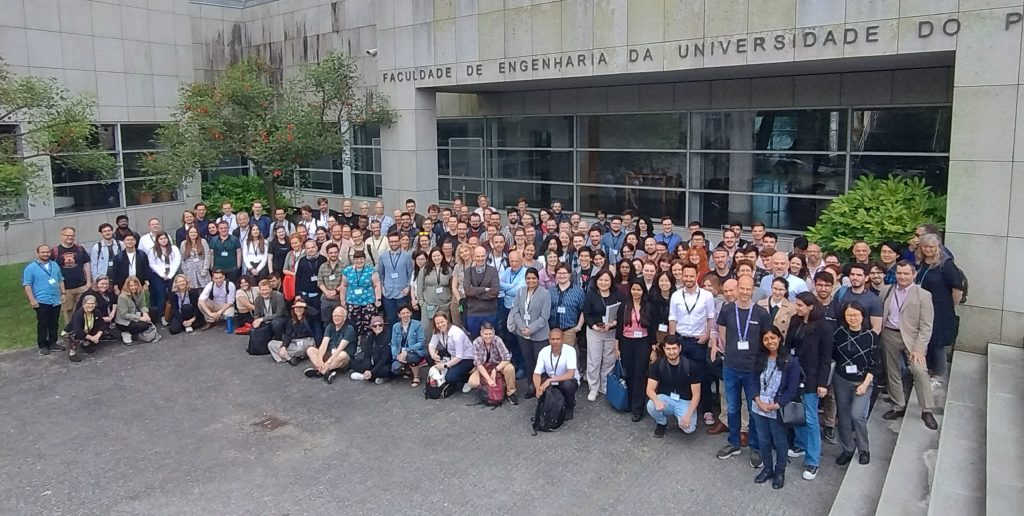The AIRR-C VII Meeting, held from June 3-6, 2024, at the Faculty of Engineering, University of Porto, Portugal, was a triumph, highlighting the latest in AIRR research. We delved into “Fundamental Immunological Processes and Human Diseases” through dedicated and groundbreaking discussions. Challenge sessions included Germline Gene Diversity where we explored interindividual variability in AIRRs with major implications for disease and vaccine prediction and Machine Learning Approaches which showcased AIRRs’ potential in predicting disease outcomes and discovering new therapeutic targets.
Key Highlights
The success of AIRR-C VII was bolstered by the generous support of our 19 sponsors and partners, whose contributions were instrumental. We extend our heartfelt thanks to all who supported us. The event drew a diverse global audience with 182 in-person attendees and 31 remote participants from 26 countries, marking an increase from 2022. Our exceptional program featured 16 invited speakers, 10 contributed talks, 96 research posters, 11 Working Group and Sub-Committee posters, and a dynamic mix of sessions including 10 lightning demos and 9 deep dive tutorials. Participants engaged in hands-on, one-hour “deep dive” tutorials and short 10-minute “lightning” demonstrations of innovative software and tools, enhancing their technical skills and knowledge.
Early career researchers and students actively participated in career development activities alongside the scientific program. “Networking is in the AIRR” featured a speed networking event connecting early career scientists with established AIRR researchers, fostering invaluable connections across sectors and research areas. A career development panel discussion offered insights into diverse career paths within AIRR research, complementing the scientific sessions and providing opportunities for direct engagement with experts.
As part of the Industry Networking Reception, a special “hot topics in the field” round table session provided a unique opportunity for industry partners and scientific researchers to engage in exciting discussions. Moderated by pairs of AIRR-C Working Group Co-leaders and Industry Partners, these sessions focused on future needs and challenges in key areas such as “Antibody Discovery,” “AIRR-seq epitope/antigen annotation,” “Datasets and applications/tools for mining the repertoire,” “Biological Standards/Controls/Methods,” and “Data sharing & data standards for AIRR analysis and software.” The goal of these discussions was to gather input and ideas to shape the future of AIRR research.
Looking Ahead
AIRR-C VII has set a new standard for excellence. We eagerly anticipate the AIRR-C VIII meeting in 2026, where we will continue driving the exciting advancements in immunogenetics.
For more information, visit [Event Website] or contact us at [Contact Information] or follow us at #AIRRC8.


